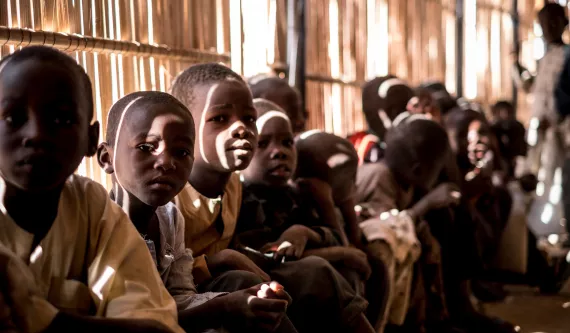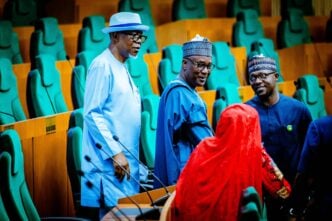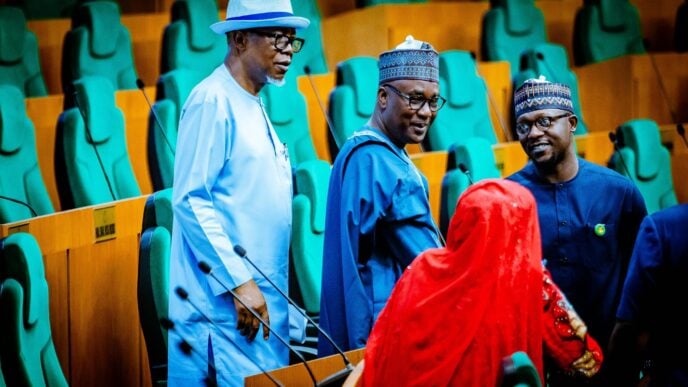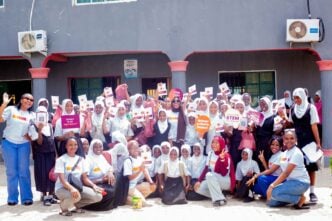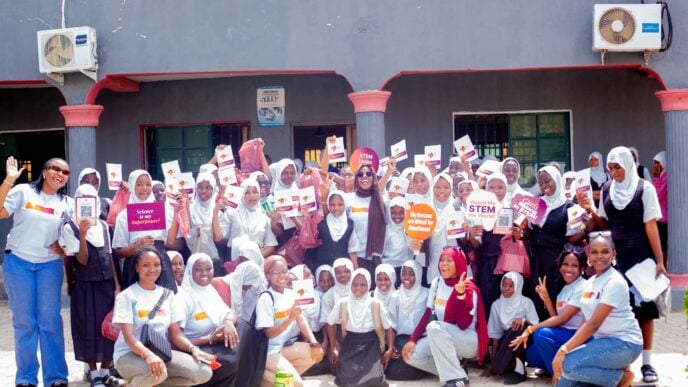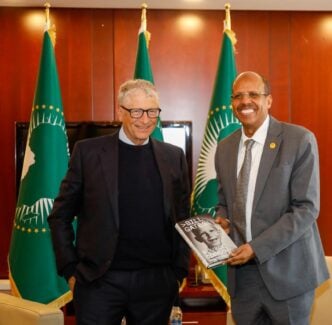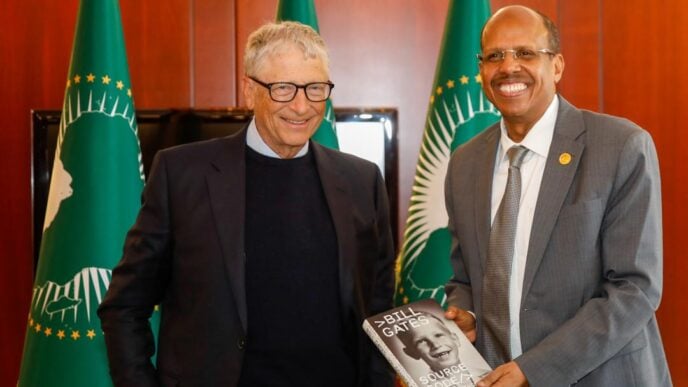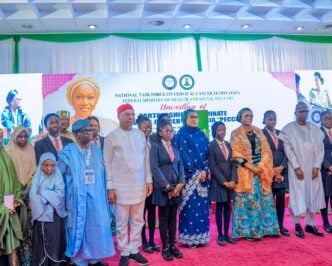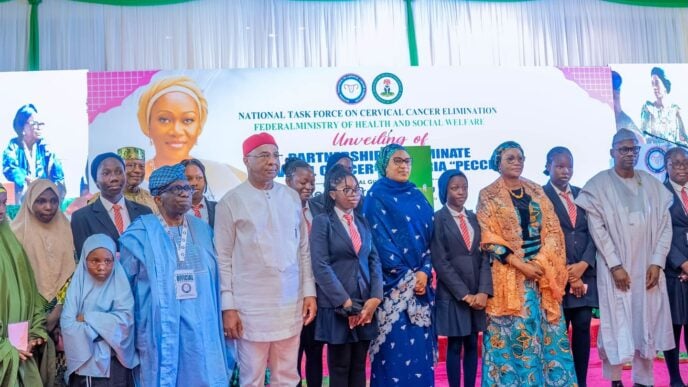The federal government has launched the alternate education school feeding project.
Nentawe Yilwatda, minister of humanitarian affairs and poverty reduction, who inaugurated the programme on Tuesday in Abuja, said it aims to reach 20 million out-of-school and informal children by 2026.
The programme is implemented by the Renewed Hope National Home-Grown School Feeding Programme (RH-NHGSFP) in collaboration with the national commission for Almajiri and out-of-school children education and the National Identity Management Commission (NIMC).
The minister described the project as a response to the rising number of out-of-school children in Nigeria.
Advertisement
“There is no better time to renew our commitment to inclusive, equitable, and quality education,” he said.
Karsana II, a nomadic settlement in the federal capital territory (FCT), serves as the pilot site, with temporary learning centres for primary one to three pupils, a staff room, and a solar-powered borehole for clean water.
The programme integrates daily school meals to boost attendance, retention, and cognitive development.
Advertisement
“This is not merely an education or feeding initiative — it is a holistic, rights-based intervention,” Yilwatda added.
Badamasi Lawal, national coordinator and chief executive officer of the National Social Investment Programme Agency (NSIPA), said the project targets children in unconventional settings, including displaced camps and informal settlements.
“This is not charity. It is justice. It is governance at its most intentional,” Lawal said.
Aderemi Adebowale, national programme manager of RH-NHGSFP, noted that 200 Almajiri children in Karsana have been targeted in the pilot, integrating border communities and informal camps.
Advertisement
Nurudeen Zauro, technical advisor to the president on economic and financial inclusion, said the initiative aligns with President Bola Tinubu’s inclusive agenda.
Abdulkadir Jobe, chairman of the house committee on poverty alleviation, who was represented by Alex Ikwechegh, affirmed the government’s commitment to reducing poverty through the project.

